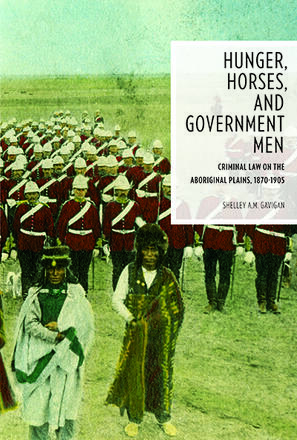
Hunger, Horses, and Government Men
Criminal Law on the Aboriginal Plains, 1870-1905
This fascinating account of Aboriginal people’s encounters with the law in prairie Canada challenges conventional wisdom about relations of power and inequality in the criminal courts.
Description
Scholars often accept without question that the Indian Act (1876) criminalized First Nations. Drawing on court files, police and penitentiary records, and newspaper accounts from the Saskatchewan region of the North-West Territories between 1870 and 1905, Shelley Gavigan argues that the notion of criminalization captures neither the complexities of Aboriginal participation in the criminal courts nor the significance of the Indian Act as a form of law. This illuminating book paints a vivid portrait of Aboriginal defendants, witnesses, and informants whose encounters with the criminal law and the Indian Act included both the mediation and the enforcement of relations of inequality.
Awards
- Short-listed, The Sir John A. Macdonald Prize, Canadian Historical Association 2013
- Short-listed, CLSA Book Prize, Canadian Law and Society Association 2013
- Winner, Clio Prize for the Prairies, Canadian Historical Association 2013
Reviews
An enormously interesting and comprehensive read that does a great deal to provide the legal treatise with the respect that it should be afforded. It is an important book for anybody interested not only in legal history but also its “kissing cousins” such as social and political history. Legal history of this sort is something that has, unfortunately, received short shrift, so it is heartening to find such a well-written and well-edited riposte to those who might feel that the legal treatise is not worthy of the scrutiny of some of the best legal minds out there.
- Stephen Spong, Reference Librarian, Osgoode Hall Law School, York University